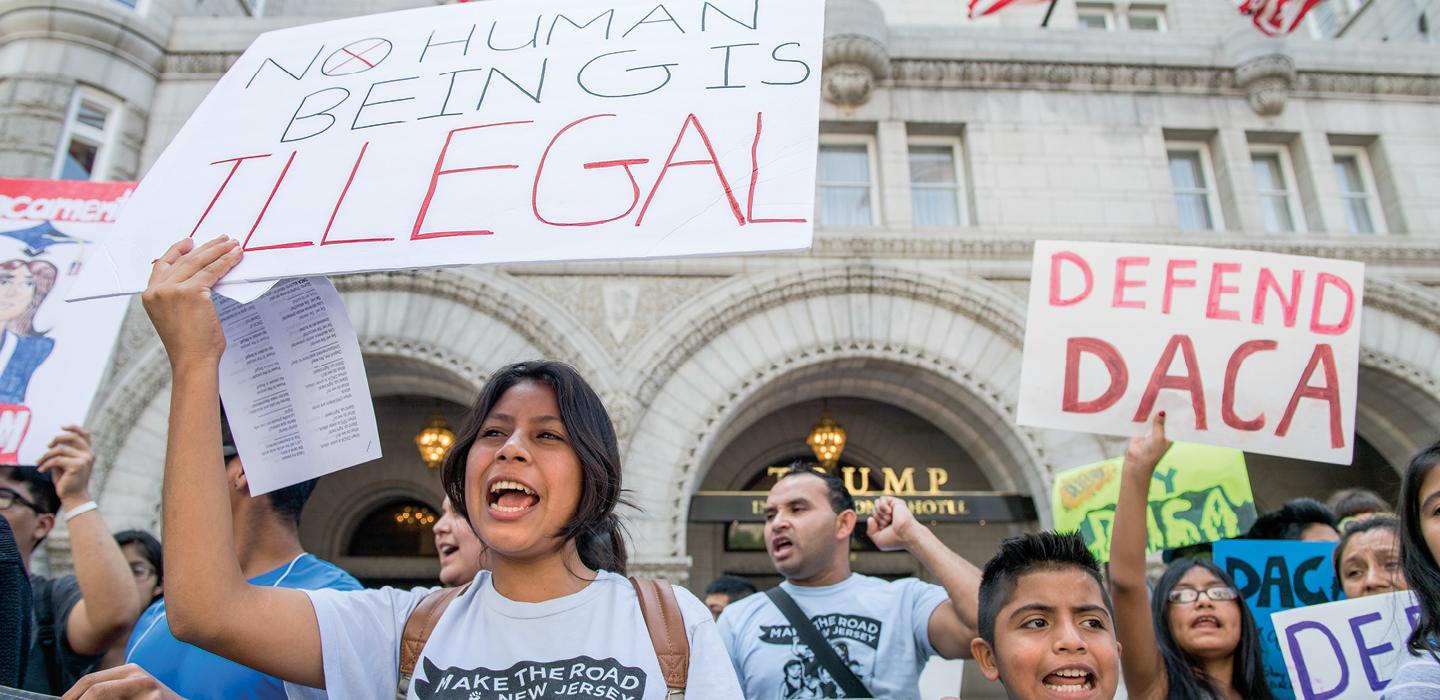Jessica Rojas was born in Mexico and came to the U.S. at the age of 5, when her parents crossed the border illegally in search of a better life for themselves and their children.
Growing up in Chicago, Rojas excelled in school and went on to college. But the chemical engineering degree she earned last year would have been virtually useless without a program known as Deferred Action for Childhood Arrivals, or DACA, which began five years ago. DACA allowed a major Chicago utility company to legally hire her despite her undocumented-immigrant status. She now has a $65,000-a-year job, helping to modernize the city’s electrical grid.
But the life Rojas has built in the U.S. is in jeopardy. She’s one of about 800,000 young undocumented immigrants who are currently protected by DACA, a program President Obama created by executive order to provide legal protections for young people brought to the U.S. illegally as children. In September, President Trump announced that he would end DACA by March unless Congress passes legislation to make it part of federal law.
“It’s scary,” Rojas says. “Because of DACA, I was able to come this far.”
To qualify for the program, applicants must have entered the U.S. by age 16, lived here continuously since 2007, and committed no serious crimes. The protection lasts for two years and can be renewed.
Jessica Rojas was born in Mexico. She came to the U.S. with her parents, who crossed the border illegally in search of a better life for themselves and their children. At the time, she was only 5 years old.
Growing up in Chicago, Rojas excelled in school and went to college. But the chemical engineering degree she earned last year would have been practically useless without a program known as Deferred Action for Childhood Arrivals, or DACA, which began five years ago. DACA allowed a major Chicago utility company to legally hire her despite her undocumented-immigrant status. She now has a $65,000-a-year job. She’s helping to modernize the city’s electrical grid.
But now the life Rojas has built in the U.S. is at risk. She’s one of about 800,000 young undocumented immigrants who are currently protected by DACA. President Obama created the program by executive order to provide legal protections for young people brought to the U.S. illegally as children. In September, President Trump announced that he would end DACA by March unless Congress passes legislation to make it part of federal law.
“It’s scary,” Rojas says. “Because of DACA, I was able to come this far.”
To qualify for the program, applicants must have entered the U.S. before age 16, lived here continuously since 2007, and committed no serious crimes. The protection lasts for two years and can be renewed.

